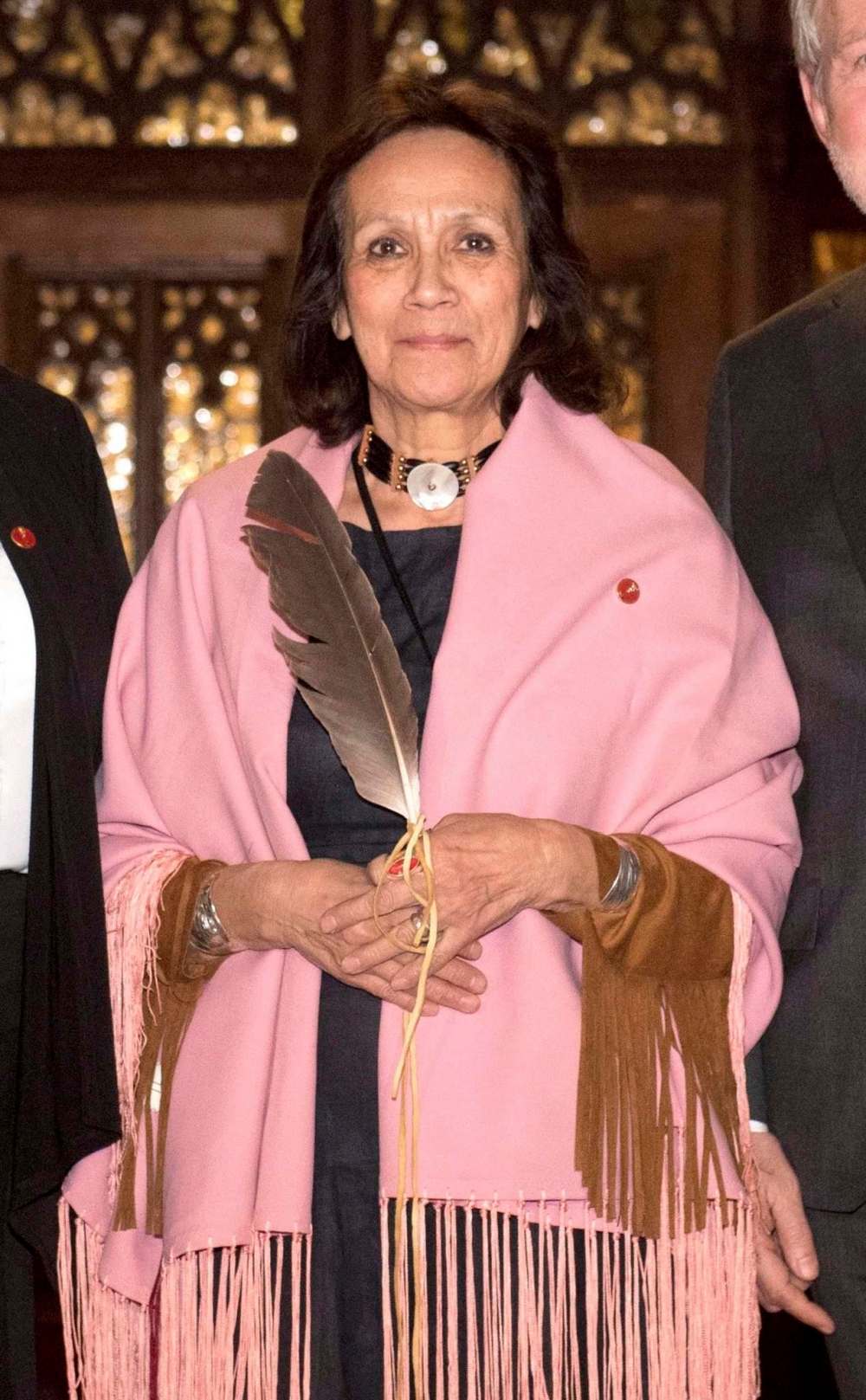Senator’s oral health comments scrutinized
Indigenous dental program for children successful, official says
Advertisement
Read this article for free:
or
Already have an account? Log in here »
To continue reading, please subscribe:
Monthly Digital Subscription
$1 per week for 24 weeks*
- Enjoy unlimited reading on winnipegfreepress.com
- Read the E-Edition, our digital replica newspaper
- Access News Break, our award-winning app
- Play interactive puzzles
*Billed as $4.00 plus GST every four weeks. After 24 weeks, price increases to the regular rate of $19.00 plus GST every four weeks. Offer available to new and qualified returning subscribers only. Cancel any time.
Monthly Digital Subscription
$4.75/week*
- Enjoy unlimited reading on winnipegfreepress.com
- Read the E-Edition, our digital replica newspaper
- Access News Break, our award-winning app
- Play interactive puzzles
*Billed as $19 plus GST every four weeks. Cancel any time.
To continue reading, please subscribe:
Add Winnipeg Free Press access to your Brandon Sun subscription for only
$1 for the first 4 weeks*
*$1 will be added to your next bill. After your 4 weeks access is complete your rate will increase by $0.00 a X percent off the regular rate.
Read unlimited articles for free today:
or
Already have an account? Log in here »
Hey there, time traveller!
This article was published 07/02/2018 (2789 days ago), so information in it may no longer be current.
OTTAWA — A senior Indigenous Services official says a new Manitoba senator’s scathing comments about second-class medical treatment for First Nations people unfairly overlook efforts aimed at rectifying the situation.
On Tuesday, newly minted Sen. Mary Jane McCallum said Cree communities in northern Manitoba were losing trust with the federal Liberals. The practising dentist said reserves are grappling with burdensome paperwork, slow devolution and preventive dental programs she described as shoddy.
Valerie Gideon, the acting senior assistant deputy minister of the First Nations and Inuit Health Branch, said she largely agreed with the senator’s comments around the social determinants of health, where families grappling with poverty and a lack of education have more health issues and more difficulty accessing care.

However, Gideon took issue with McCallum’s characterization of the Children’s Oral Health Initiative (COHI) program, which aims to prevent dental issues among Indigenous children by providing them oral-hygiene lessons, temporary fillings and applying fluoride varnish to their teeth.
McCallum said COHI “isn’t working” because she’s seen an uptick in children’s cases at the Cree Nation Tribal Health Centre in The Pas.
“With COHI, you have unqualified, unlicensed people who work, and they have no oversight body whatsoever. They are not licensed anywhere. They’re working on First Nations, and only on First Nations land would that happen,” she told a committee Tuesday.
Gideon said that’s inaccurate.
“I don’t think that that’s a fair comment. The community-based workers that are hired by tribal councils, or by their communities, to do the work are trained by qualified dental-health professionals,” she said in an interview.
Gideon noted unlike in Saskatchewan, dental therapists are not regulated in Manitoba, including those who administer COHI. She said those staff are supervised by dentists who work for the federal program that provides health care on reserves.
“We do feel strongly the COHI program is a successful practice,” she said, citing data specific to Manitoba, where the number of children aged six or seven with decay in their permanent teeth had dropped 11 per cent since the program started.
The department said the Liberals’ $45.4-million funding boost for COHI will expand the program to 60 First Nations communities from 25 in Manitoba by 2021. Gideon said it will take some time to get the program running, and talks are in process with the Keewatin and West Region tribal councils.
She described COHI as a key part of tackling the underlying social determinants of health. Staff visit schools and homes to teach people good dental-health practices, and identify children facing dental issues so their families can rectify those problems early on.
McCallum also said she’s been the sole dentist — on a part-time basis — for a population of 12,000.
Gideon said she’s aware of the staff vacancies at McCallum’s clinic in The Pas, but said there have been efforts to recruit people, and that the government is reviewing the clinic’s application to double its budget.
McCallum also claimed she has to detail anticipated benefits for preventive work in order to have it paid for, meaning more paperwork and less time to treat patients.
Gideon said “there may be some misconceptions” around dental billing, because 97 per cent of dental billings don’t require predetermination and instead are invoiced. Similarly, she said the government simplified paperwork around preventive services, leading to a 35 per cent uptick in those treatments since the 2012-13 year.
“We’ve worked a lot over the years to reduce the administrative burden on dental professionals, and it shows,” she said.
“I think we have made a lot of progress over the last five years.”
In a Wednesday statement, McCallum said she had “serious cause for concern” about the Free Press coverage of her Tuesday remarks, calling it “injurious and divisive.”
She said the article was “highly misleading” in saying she “blasts” the Liberal government, and that she gave their approach to Indigenous issues a “scathing dressing-down.” McCallum said the issues she raised precede the Trudeau government, which she claimed the article did not adequately represent.
“As the relationship between Canada and the First Nations is still quite fragile, I am concerned that reporting in such a skewed way will only act to further divide rather than unite,” she wrote.
dylan.robertson@freepress.mb.ca
History
Updated on Tuesday, February 13, 2018 12:16 PM CST: Corrects description of programming of Children’s Oral Health Initiative (COHI).

